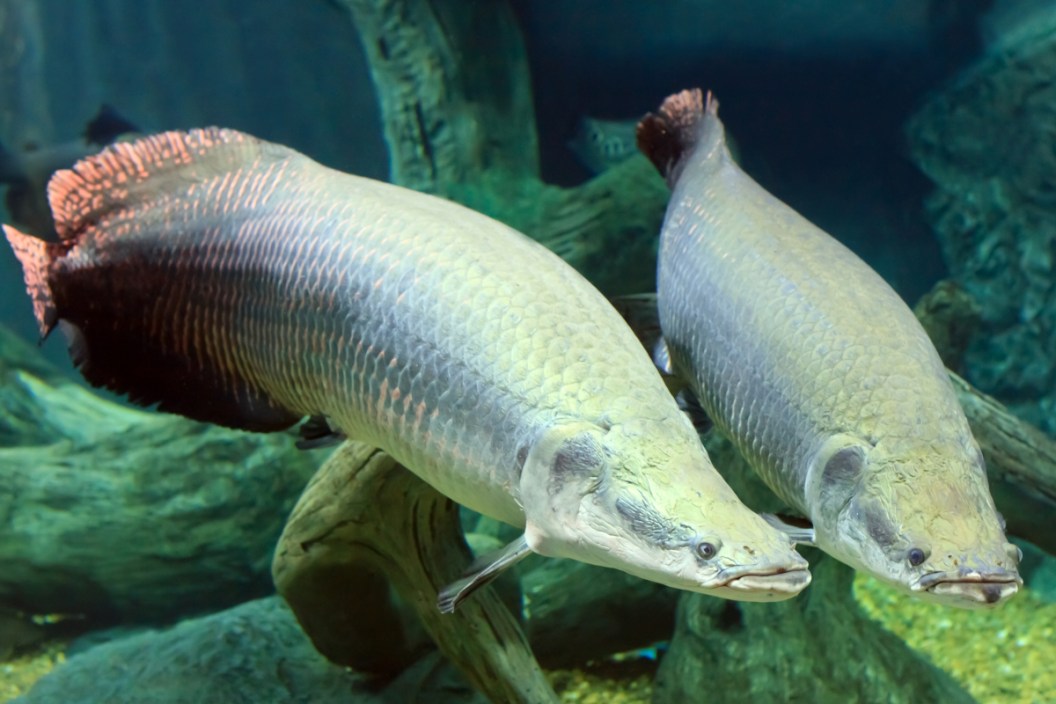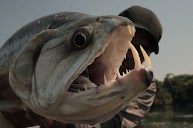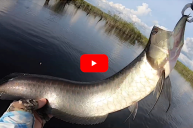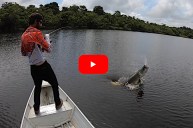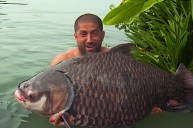Discovery of Arapaima prompts concerns about new invasive species.
Florida's problems with invasive species are numerous and well documented. From feral hogs to iguanas, monitor lizards, snakeheads, and more recently, Burmese pythons, officials with the Florida Fish and Wildlife Conservation Commission have their hands full.
Now new concerns are surfacing after a dead arapaima, a large, South American predatory fish, washed up dead in the Caloosahatchee River last weekend. NBC-2 reports Leah Getts spotted the large carcass while her child was playing in a park along the river in Cape Coral.
She had no idea what kind of fish it was until she posted it to Facebook and people recognized it as an out-of-place predator that normally calls the waters of the Amazon River home.
The carcass was nearly five and a half feet long. This species can grow to lengths of 10 feet, making it one of the largest freshwater fish in the world. Adding to the mystery and intrigue of the find, a large fishhook was found still lodged in its jaw. Seemingly indicating that an angler had a fight with and lost the fish at some point recently.
"It was bigger than my 7-year-old. I thought that is nothing I've ever seen before," Getts told the news station. "It was kind of white with a pinkish tail. It had a huge kind of open bass looking kind of mouth. It didn't look like anything I had heard of or seen before."
NBC-2 further reports the possibility of arapaima in Florida is not something unprecedented by the FWC. However, a study done on the possibility concluded that the waters of Florida were too cool for the species to thrive here. Calusa Waterkeeper biologist John Cassani told the news station he worries that study may be outdated.
"The primary concern with arapaima is that they would become established and reproduce naturally," Cassani told the station.
Florida's climate continues to warm, and as a result, the areas with waters that could support the fish continue to grow. While anglers would likely appreciate a new species to target, biologists like Cassani say the risk to native species is too great.
How the fish got into the river is likely to remain a mystery for now. We'll keep an eye on this story and bring an new developments on arapaima in Florida here at Wide Open Spaces.
For more outdoor content from Travis Smola, be sure to follow him on Twitter and check out his Geocaching and Outdoors with Travis YouTube channels.
NEXT: THE AXIS DEER AND HOW THEY'RE IMPACTING PARTS OF THE UNITED STATES
WATCH
